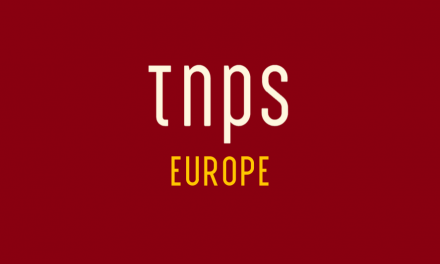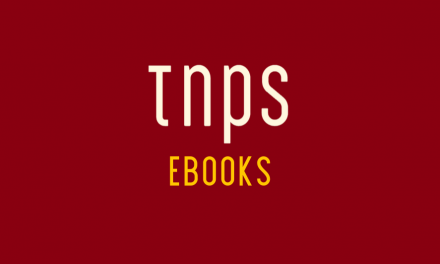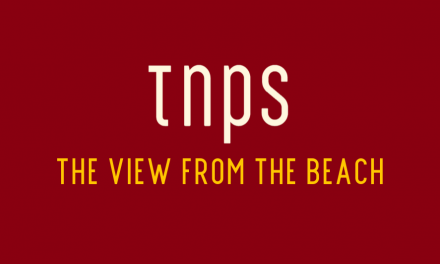But this is James Daunt, who had made inconsistency an art form (and lousy grammar too- the Waterstone’s ebook store was dropped for no sensible reason). Watch out, candle, the wind is changing. Maybe Daunt will suddenly remember he was ebooks’ greatest champion. Oops! Many a true word spoken in jest.
When it comes to ebooks, James Daunt has always been a candle in the wind, saying one thing, doing another, and rewriting history to suit his latest fancy.
Back when Waterstone’s had an apostrophe (because back then bookstores understood grammar came with the territory) the company also had an ebook store.
The Daunt came along. Now, no question Waterstone’s was in a downward spiral, and had Daunt not been brought in when he was then bankruptcy would surely have followed. Daunt sure knows how to run twentieth century bookstores. Twenty-first century bookstore, not so much.
Digital is something Daunt is obliged to cope with, but he shows little sign of understanding what it means, or how it can be leveraged. Pre-Pandemic, that was not a big concern for him. He was master of the 1990s bricks & mortar sales school, and for Daunt that carried through until the 2010s.
Until summer 2010, the Kindle was a US phenomenon. There was no Kindle UK, and UK ebooks were a fad his failed predecessors at Waterstone’s had foolishly embraced. Daunt reluctantly inherited a poorly-run Waterstone’s ebook store and Korean ereader devices being sold in store dark corners, that Daunt saw as an affront to bookselling.
Whatever next? Self-publishing? “Unutterable dross”, Daunt said of that other American publishing industry fad threatening to cross the pond.
Nor did Daunt’s vitriol stop there. If it sounded even remotely modern, Daunt dismissed it out of hand.
Online book sales? Daunt’s words of wisdom echo across the years. “The computer screen is a terrible environment in which to select books. All that ‘If you read this, you’ll like that’ – it’s a dismal way to recommend books.”
Amazon itself? “They never struck me as being a sort of business in the consumer’s interest. They’re a ruthless, money-making devil.”
Yeah, how dare Amazon sell books cheaper than bookstores and give consumers more choice. Luckily for us, Waterstone’s was a consumer charity and making money wasn’t on the agenda. No, hold on, that’s why Waterstone’s was on the brink of bankruptcy. Businesses need to make money. and consumer-facing businesses need to operate in the consumer’s interest to keep customers coming back for more.
That was back in the heady days of 2011 when the Waterstone’s ebook store and the separate paint-by-numbers Waterstone’s website were still finding their feet. I was topping both the Kindle UK and Waterstone’s ebook charts that year, so can personally vouch for the value of both to authors and publishers. Tiny compared to 2020s ebook sales, of course, but back then not to be sneezed at.
Waterstone’s stores back then sold Korean ereader devices which, being epub, could be used with Waterstone’s epub ebooks. But guess what. Waterstone’s store staff had no idea the Waterstone’s ebook store even existed.
Nor did Daunt, it seemed. Talking about his vision for the bookstore chain, Daunt opined that one day:
“You’ll walk into a Waterstone’s and there’ll be a bit of the shop where you can look at e-readers, play with them. We’re inventing one of our own – perhaps we’ll call it the Windle – and we’re working on the Barnes & Noble approach. They’ve embedded their own e-book, called the Nook, within their bookshops and have succeeded in taking market share from the Kindle.”
Keep in mind this is December 2011. Ebooks are in the ascendancy, publishers are panicking, and Daunt is in full candle in the wind mode. See a bandwagon. Jump on it quick.
By May 2012 Daunt is doing what he promised, but with a twist. He stops selling Korean ereaders and starts selling Kindle devices in the Waterstone’s high street stores, with big plinths in central positions.
Yes, you’re right. this has to be true because you simply could not make it up. Daunt is selling Kindle devices in his stores that cannot be used with the Waterstone’s ebook store, so customers have to go to the website of the “ruthless. money-making devil” Amazon to buy ebooks, and while there they find the same print books they could find in Waterstone’s, only cheaper.
For several years this circus continued. In February 2014 Daunt announced po-faced that not only would he continue to sell Kindle devices despite the loud objections of everyone in publishing except Uncle Jeff, but that he would overhaul the Waterstone’s website. So James, whatever happened to “The computer screen is a terrible environment in which to select books”?
Daunt explained: “At the moment, customers do want to read digitally, and they want a very good ecosystem associated with their digital demands. And at the moment, the Kindle is the one that is best. If we were to sell anything else it would be inferior, and we would never do that.”
This farce continued until 2015 when Daunt finally began to grasp that maybe inviting the lion to eat at the home dining table was not a good idea. He finally kicked out the Amazon Kindle devices, explaining that ebook sales had plateaued, which of course was because traditional publishers were pricing ebooks so high they were no longer value for money.
Bizarrely it would not be until May 2016 that Daunt finally shuttered the Waterstone’s ebook store because…wait for it…no-one was buying Waterstones ebooks. Well of course not. Thy were all buying Kindle ebooks because that’s what Daunt had directed them to do. Curiously Daunt then sent the handful of still-loyal Waterstone’s ebook customers to Kobo.
At which point you’re probably thinking, well at least Daunt managed to be consistent about self-publishing. “Unutterable dross”, remember?
Hold that thought. This was Daunt in 2015: “I have been converted to the virtues of self-publishing a long time ago … Is the explosive growth of tablets and social media going to mean people spend less time reading? [Self-publishing] is doing a lot to answer the question of how to keep people reading and not watching Netflix. [It] is part of the answer to that.”
So now Daunt belatedly loves self-publishers. But at least we know Daunt doesn’t like ebooks.
He’s shuttered the Waterstone’s ebook store, kicked out the Kindle, and made clear ebooks have plateaued, have no future, and are only good as a bulwark against the latest demon in the room, Netflix. Anyone else remember when Netflix was the existential threat of the day?
But this is James Daunt, who had made inconsistency an art form (and lousy grammar too- the Waterstone’s ebook store was dropped for no sensible reason). Watch out, candle, the wind is changing. Maybe Daunt will suddenly remember he was ebooks’ greatest champion.
Oops! Many a true word spoken in jest.
Fast-forward June 2020, and Daunt and ebooks are inseparable.

Explained Daunt: “The perception that I am anti-e-books is wrong. I am very in favour of them if I can sell them, and I have not been able to do that [in the UK].”
Hmmm. Might that just possibly be because you were deliberately sending customers to Amazon instead, Jim?
In the US, meanwhile, it seems ebooks were doing rather well. Especially when the Pandemic arrived.
Daunt of course inherited the Nook ebook store as the poisoned chalice that came with being the new CEO of Barnes & Noble. Having left us in no doubt over many years that ebooks were a waste of space, it seemed just a matter of time before Daunt either shuttered or sold Nook, so he could focus on the one business area where he does know what he’s doing – selling print books in bricks & mortar bookstores.
Daunt took over as Barnes & Noble CEO in 2019, and with the most unfortunate timing met the 2020 Pandemic head-on.
That will be the Pandemic that closed bricks & mortar bookstore and breathed new life into online sales and ebooks.
Daunt was rewriting history in no time at all.
“One of the things where I differ from my immediate predecessor at B&N is that I consider the ability to sell e-books to be a great strength, and the company had stopped investing in Nook. That will change. We will make Nook very much part of what we do [in the US].”
Just in case we hadn’t quite got the history re-write clear in our heads, Daunt went on:
“I absolutely love Nook, and I think my predecessors had fallen out of love with it. It’s under-promoted to our customers, it became the sort of wayward child that had become embarrassing. But if you want to read digitally, the app is fantastic. I’m a champion of digital books and digital book retailing.”
That was 2020, since when the wind has been blowing again.
Three years on and there has been no noticeable investment in Nook and, come to that, no mention of Nook at all in all Daunt’s continuous preening about how well B&N is doing under his guidance.
The keynote speech at the 2023 PW Book Show this week being a case in point.
The nearest Daunt came to even mentioning digital was a passing reference to B&N’s online presence, where it was noted that “the company is striving to modernize and improve the company’s online shopping and app functionalities to better serve and connect with customers.”
That will be the same screen buying that daunt described as “a terrible environment in which to select books.”
So we have James Daunt caught in a wind-chamber of his own making, blowing one way then another depending on the latest headlines.
But at the end of the day, a bricks & mortar bookstore chain cannot survive selling competing products without favouring one over the other.
We see this in the Nordics where digital has been allowed to usurp print as the consumer’s choice.
Publishers will not allow that to happen in the US. And that of course goes to the heart of the matter. Daunt cannot and will not allow digital to usurp print, but he dare not wind down Nook or spin off Nook, any more than he can wind-down the B&N online sales, because he knows they are the reason B&N is still here today as we put the Pandemic in the rear-view mirror. Until next time.
It’s a juggling act that Daunt, for all his undoubted traditional bookstore business acumen, is ill-equipped to manage.
But for Daunt this is just a matter of surviving long enough for the B&N and Waterstone’s hedgefund owner to judge the moment right to sell the two companies on, probably sooner rather than later, because no hedgefund is in it for the long haul.
Until then B&N is likely in safe hands, even if one hand is tied behind his back by having to sell digital books, including those “unutterable dross” self-published titles Daunt now loves so much. Or was that last week?
#BarnesandNoble #Nook #Nookebookstore #Waterstones #USbookmarket #UKbookmarket #CandleInTheWind





